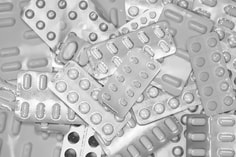|
The last time your doctor prescribed you an antibiotic, what directions came with the prescription? Most doctors and pharmacists will warn about the importance of taking the antibiotic prescription in its entirety, but have they ever recommended taking a probiotic along with the antibiotic?

In her book, Food Over Medicine, Dr. Pamela Popper makes the powerful declaration that “one hundred percent of all doctors surveyed will tell you that taking an antibiotic destroys beneficial bacteria.” Considering the etymological origins of the words antibiotic and probiotic, it only makes sense that the two should be used in tandem to balance out the side affects that can result from taking antibiotics. The root of both words is biotic, which originates in the Greek word for life or bios. The prefixes illustrate the duality of the words; anti meaning “opposed to” or “against” and pro indicating “in favor of”.
Biologist, Sir Alexander Fleming, pioneered modern antibiotics in the 1920’s with the breakthrough discovery of a naturally antiseptic enzyme, which he called lysozyme. A few years later, he stumbled upon what he would later name penicillin, an extract from the fungus Penicillium notatum that proved to destroy bacteria and inhibit growth in a number of viruses including influenza, gangrene, and tuberculosis.[i] Antibiotics can be a useful tool in treating infections caused by bacteria; however, they are severely over prescribed to the public as a “quick fix” to a viral ailment. “In addition to contributing to the prevalence of antibiotic resistant bacteria, unnecessary use of antibiotics also adds financial cost to the health care system and causes adverse effects for those taking the medication,” says Dr. Michael L. Barnett, a clinical fellow in medicine at Harvard Medical School.[ii] Medical professionals worldwide have been asked to reduce the amount of antibiotics prescribed in an attempt to combat antibiotic-resistant strains of infections.[iii] While taking antibiotics can be helpful given the situation, the antibiotic medicine cannot differentiate the good bacteria from the bad bacteria, and therefore eliminates all bacteria from the system. According to the World Health Organization, probiotics are “live microorganisms that, when administered in adequate amounts, confer a health benefit on the host”.[iv] Dr. Popper explains that not just anything labeled probiotic will do, “they need good pharmaceutical-grade probiotics. You’re not going to replenish a destroyed colony by eating yogurt of any type.” Love and Light, xo Arielle Interested in some of the sources I used for this blog? Check them out below: [i] https://explorable.com/history-of-antibiotics [ii] http://www.medicalnewstoday.com/articles/266998.php [iii] http://www.theguardian.com/society/2014/oct/10/doctors-antibiotics-prescriptions [iv] http://cdrf.org/2014/06/10/definition-probiotics-12-years-later/ P.S. Want to keep up with my latest blogs and offerings? Make sure you sign up for the mailing list and receive a FREE gift as my thank you for being on this journey together!
0 Comments
Leave a Reply. |
Arielle SterlingArielle is a best-selling author, holistic life coach and intuitive energy healer. Archives
July 2024
Categories
All
|


 RSS Feed
RSS Feed